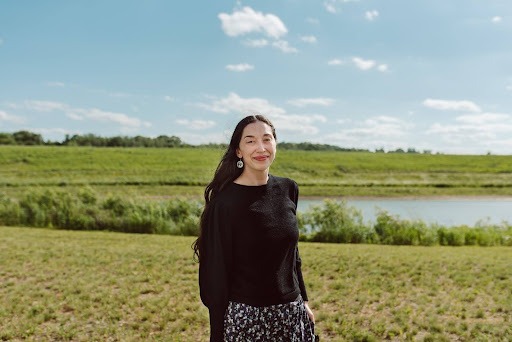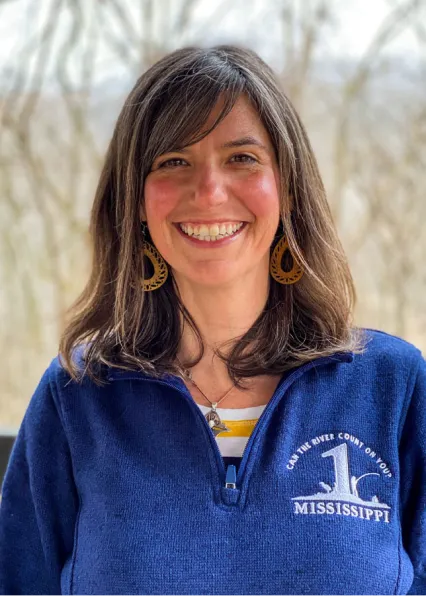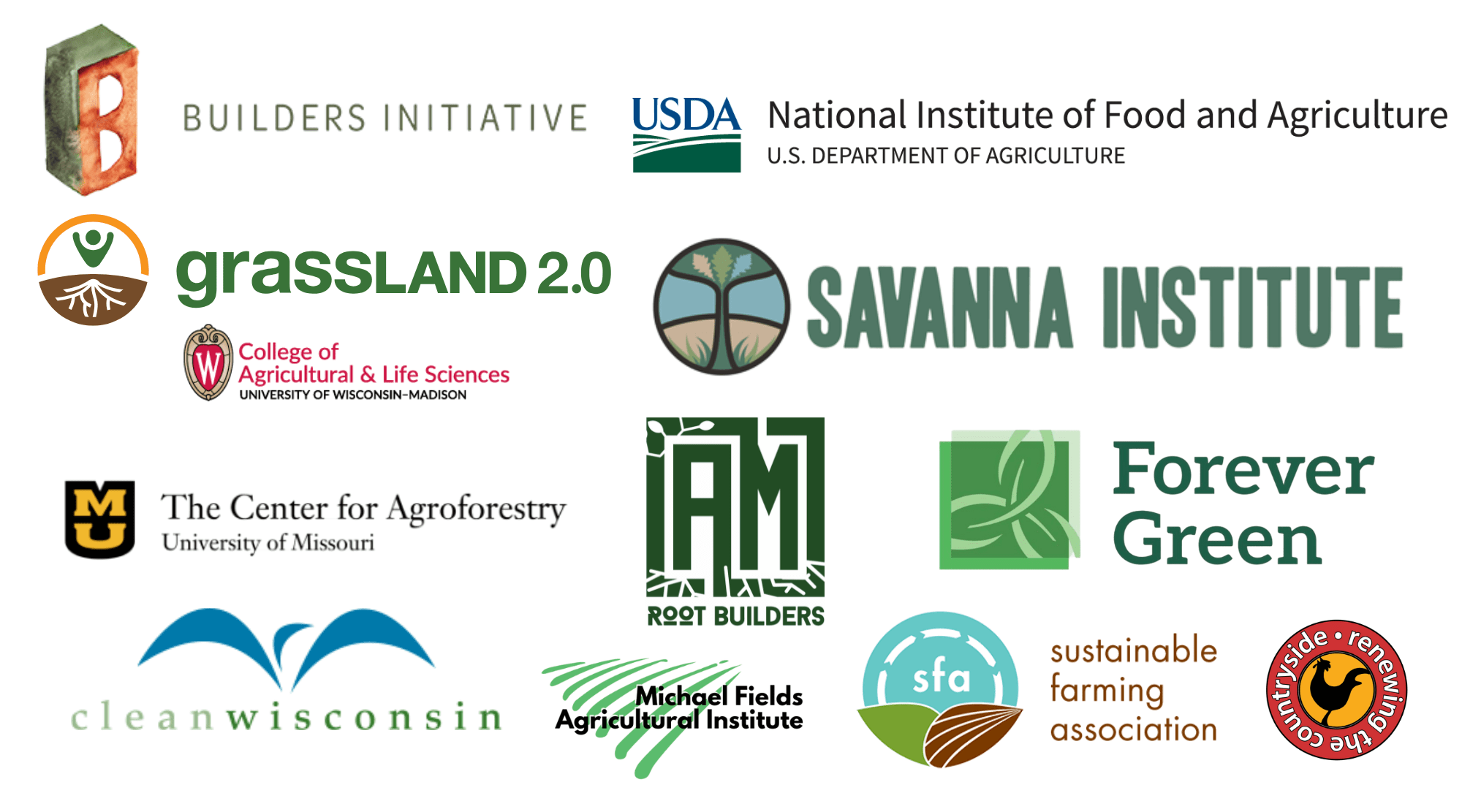 Cree Rose Dueker is passionate about data, storytelling, and engagement as powerful tools for advancing Native sovereignty. She earned her degree in Social Sciences at Portland State University, with minors in Indigenous Nations Studies and Black Studies, deepening her understanding of Indigenous and Black histories, communities, and movements. On campus, she held leadership roles with United Indigenous Students in Higher Education while working at the Native American Student & Community Center, Orientation, and Academic Advising—spaces where she fostered community and advocated for Native students. Cree continued this work professionally after graduating in a role with Undergraduate Admissions, where she built lasting relationships with Native staff, students, and local Tribes. As co-chair of the Native Advisory Group, she championed scholarship opportunities, played a role in Oregon’s Native tuition program passing, and worked to strengthen campus resources. Her advocacy extended to data sovereignty, ensuring that we were collecting accurate and specific data about incoming Native students and using this data to better meet student and institutional needs. At Native Governance Center, Cree is part of the Community Engagement team, where she blends her love of education and outreach to create meaningful resources and programming. With experience working alongside Native nations and urban Native communities, she brings a deep commitment to uplifting Indigenous voices and fostering understanding between Native and non-Native partners.
Cree Rose Dueker is passionate about data, storytelling, and engagement as powerful tools for advancing Native sovereignty. She earned her degree in Social Sciences at Portland State University, with minors in Indigenous Nations Studies and Black Studies, deepening her understanding of Indigenous and Black histories, communities, and movements. On campus, she held leadership roles with United Indigenous Students in Higher Education while working at the Native American Student & Community Center, Orientation, and Academic Advising—spaces where she fostered community and advocated for Native students. Cree continued this work professionally after graduating in a role with Undergraduate Admissions, where she built lasting relationships with Native staff, students, and local Tribes. As co-chair of the Native Advisory Group, she championed scholarship opportunities, played a role in Oregon’s Native tuition program passing, and worked to strengthen campus resources. Her advocacy extended to data sovereignty, ensuring that we were collecting accurate and specific data about incoming Native students and using this data to better meet student and institutional needs. At Native Governance Center, Cree is part of the Community Engagement team, where she blends her love of education and outreach to create meaningful resources and programming. With experience working alongside Native nations and urban Native communities, she brings a deep commitment to uplifting Indigenous voices and fostering understanding between Native and non-Native partners.
 Sage Phillips (she/her) is a proud Penobscot Nation citizen, 2024 Champion for Change and advocate for prospective Native youth pursuing higher education, specifically at land-grant institutions. Phillips is originally from Wabanaki Territory in Old Town, Maine, where she grew up close to her community and elders. As a 2021 Truman, Udall and Cohen Scholar, Sage has committed herself to a life in public service. As an undergraduate student in 2020, she received a grant to begin a research effort surrounding UConn’s history as a land-grant institution (LGI) today known as LandGrabCT, which was named as a 20 for 20 Connecticut Game Changer for Innovation in Connecticut History. Sage is determined to provide the next generation of Indigenous students with opportunities for practicing culture and achieving success. She is a strong believer that Indigenous sovereignty begins with education for our communities and their allies and brings this perspective to her role with the Community Engagement Program at Native Governance Center. Alongside her role at NGC, she is the Vice-Chair for the Center for Native American Youth’s Youth Advisory Board and has joined UConn’s Tribal Educational Initiative, working to establish UConn’s Avery Point campus as a Native American-Serving, Nontribal Institution – the first of its kind in the Northeast. She credits her inspiration to her grandfather and father, from whom she learned leadership at an early age while watching their work in the historic Penobscot River Restoration Project.
Sage Phillips (she/her) is a proud Penobscot Nation citizen, 2024 Champion for Change and advocate for prospective Native youth pursuing higher education, specifically at land-grant institutions. Phillips is originally from Wabanaki Territory in Old Town, Maine, where she grew up close to her community and elders. As a 2021 Truman, Udall and Cohen Scholar, Sage has committed herself to a life in public service. As an undergraduate student in 2020, she received a grant to begin a research effort surrounding UConn’s history as a land-grant institution (LGI) today known as LandGrabCT, which was named as a 20 for 20 Connecticut Game Changer for Innovation in Connecticut History. Sage is determined to provide the next generation of Indigenous students with opportunities for practicing culture and achieving success. She is a strong believer that Indigenous sovereignty begins with education for our communities and their allies and brings this perspective to her role with the Community Engagement Program at Native Governance Center. Alongside her role at NGC, she is the Vice-Chair for the Center for Native American Youth’s Youth Advisory Board and has joined UConn’s Tribal Educational Initiative, working to establish UConn’s Avery Point campus as a Native American-Serving, Nontribal Institution – the first of its kind in the Northeast. She credits her inspiration to her grandfather and father, from whom she learned leadership at an early age while watching their work in the historic Penobscot River Restoration Project.

 Kelly McGinnis
Kelly McGinnis Cree Rose Dueker is passionate about data, storytelling, and engagement as powerful tools for advancing Native sovereignty. She earned her degree in Social Sciences at Portland State University, with minors in Indigenous Nations Studies and Black Studies, deepening her understanding of Indigenous and Black histories, communities, and movements. On campus, she held leadership roles with United Indigenous Students in Higher Education while working at the Native American Student & Community Center, Orientation, and Academic Advising—spaces where she fostered community and advocated for Native students. Cree continued this work professionally after graduating in a role with Undergraduate Admissions, where she built lasting relationships with Native staff, students, and local Tribes. As co-chair of the Native Advisory Group, she championed scholarship opportunities, played a role in Oregon’s Native tuition program passing, and worked to strengthen campus resources. Her advocacy extended to data sovereignty, ensuring that we were collecting accurate and specific data about incoming Native students and using this data to better meet student and institutional needs. At Native Governance Center, Cree is part of the
Cree Rose Dueker is passionate about data, storytelling, and engagement as powerful tools for advancing Native sovereignty. She earned her degree in Social Sciences at Portland State University, with minors in Indigenous Nations Studies and Black Studies, deepening her understanding of Indigenous and Black histories, communities, and movements. On campus, she held leadership roles with United Indigenous Students in Higher Education while working at the Native American Student & Community Center, Orientation, and Academic Advising—spaces where she fostered community and advocated for Native students. Cree continued this work professionally after graduating in a role with Undergraduate Admissions, where she built lasting relationships with Native staff, students, and local Tribes. As co-chair of the Native Advisory Group, she championed scholarship opportunities, played a role in Oregon’s Native tuition program passing, and worked to strengthen campus resources. Her advocacy extended to data sovereignty, ensuring that we were collecting accurate and specific data about incoming Native students and using this data to better meet student and institutional needs. At Native Governance Center, Cree is part of the  Sage Phillips (she/her) is a proud Penobscot Nation citizen, 2024 Champion for Change and advocate for prospective Native youth pursuing higher education, specifically at land-grant institutions. Phillips is originally from Wabanaki Territory in Old Town, Maine, where she grew up close to her community and elders. As a 2021 Truman, Udall and Cohen Scholar, Sage has committed herself to a life in public service. As an undergraduate student in 2020, she received a grant to begin a research effort surrounding UConn’s history as a land-grant institution (LGI) today known as LandGrabCT, which was named as a 20 for 20 Connecticut Game Changer for Innovation in Connecticut History. Sage is determined to provide the next generation of Indigenous students with opportunities for practicing culture and achieving success. She is a strong believer that Indigenous sovereignty begins with education for our communities and their allies and brings this perspective to her role with the
Sage Phillips (she/her) is a proud Penobscot Nation citizen, 2024 Champion for Change and advocate for prospective Native youth pursuing higher education, specifically at land-grant institutions. Phillips is originally from Wabanaki Territory in Old Town, Maine, where she grew up close to her community and elders. As a 2021 Truman, Udall and Cohen Scholar, Sage has committed herself to a life in public service. As an undergraduate student in 2020, she received a grant to begin a research effort surrounding UConn’s history as a land-grant institution (LGI) today known as LandGrabCT, which was named as a 20 for 20 Connecticut Game Changer for Innovation in Connecticut History. Sage is determined to provide the next generation of Indigenous students with opportunities for practicing culture and achieving success. She is a strong believer that Indigenous sovereignty begins with education for our communities and their allies and brings this perspective to her role with the 
